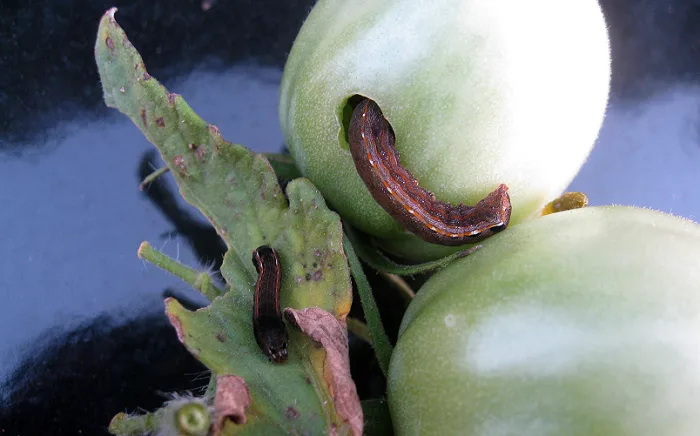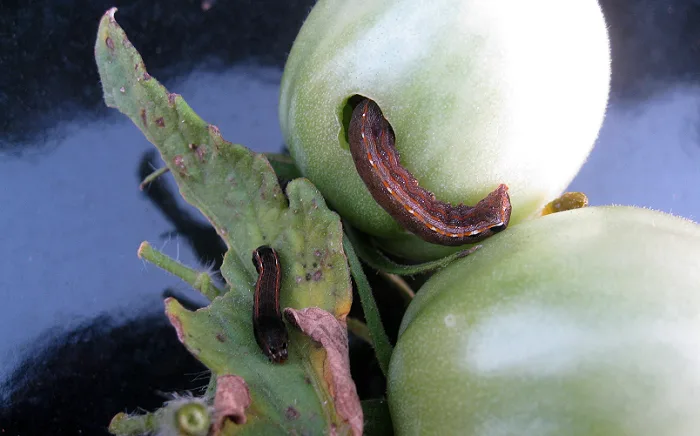
Like a horror film, but real life: Caterpillar muzzles tomato's cries for help
File this one under: 'When fact is stranger than fiction.'
It's the stuff of horror films and it happens in plain sight, according to new research out of Pennsylvania State University.
Scientists have discovered a species of caterpillar called Helicoverpa zea deposits enzyme-laden saliva on the tomatoes it eats, dampening the plant's ability to cry for help.
Yes, you heard that right.
When in distress, plants can release chemical distress signals.
That's exactly what's happening when you smell a freshly-mowed lawn, which triggers the release of protective compounds in nearby blades that haven't been cut.
In the case of tomatoes, they call out to a wasp that attacks caterpillars, also in a horrifying manner.
The wasps lay their eggs in the caterpillars which ... suffice to say ... doesn't end well for them.
But over the years and across generations, the caterpillars have evolved a way to use saliva enzymes to essentially put the tomatoes on mute.

Helicoverpa zea, also sometimes referred to as the tomato fruitworm, eating an unripe tomato. Courtesy Wikipedia.
And the damage of this tactic could be compounded: In addition to preventing the release of alarm chemicals, the pores damaged by saliva may make it harder for the plant to regulate its temperature.
The research team, led by Penn State entomology professor Gary W. Felton, now plans to find out of the phenomenon is also found in other caterpillar species.
Helicoverpa zea also dines on corn, cotton, soybeans, strawberries, and cannabis, and is commonly found in North and South America. While it's still unclear how the findings can be applied to agriculture, learning more about the caterpillar's physiology could be a big benefit to the sector.






